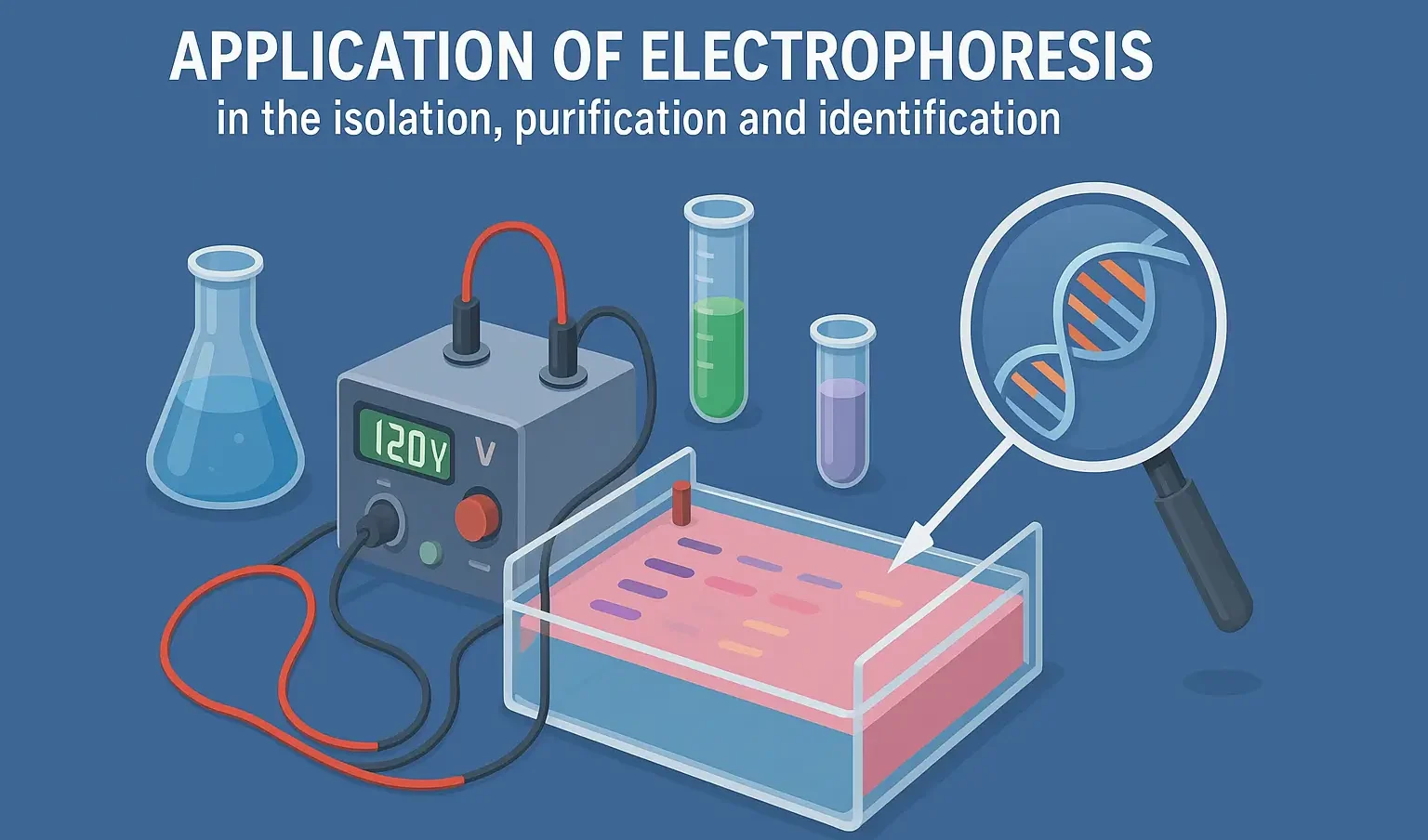- The Application of electrophoresis in the isolation, purification and identification is to analyze genetic material and protein purity in research and diagnostics.
- Application of electrophoresis in the isolation, purification and identification enables separation of biomolecules like DNA, RNA, and proteins by charge and size.
- Electrophoresis separates charged molecules in an electric field based on size, charge, and shape.
- Traditionally used for proteins and nucleic acids, it is increasingly applied to small-molecule analysis in crude drug characterization
-
Polyacrylamide Gel Electrophoresis (PAGE)
-
Principle:
- Molecules migrate through a polyacrylamide gel under an electric field.
-
Application:
- Separates complex protein or peptide mixtures in biological samples.
- Detects protein-based contaminants or active components in botanical extracts.
-
-
Capillary Electrophoresis (CE)
-
Principle:
- Uses narrow capillaries where molecules move under an electric field with high efficiency.
-
Application:
- High-resolution separation of charged small molecules, peptides, and drug components.
- Rapid, low-volume analysis for quality control and high-throughput screening.
- Coupled with UV or MS detectors (CE-MS) for enhanced identification.
-
-
Isoelectric Focusing (IEF)
-
Principle:
- Separates molecules by their isoelectric point (pI) in a pH gradient.
-
Application:
- Characterization of proteins and enzymes in crude extracts.
- Purification of specific enzymes or protein-based therapeutics from natural sources.
- Electrophoretic techniques complement chromatography and spectroscopy, enhancing the characterization of bioactive compounds.
-
Advertisements

